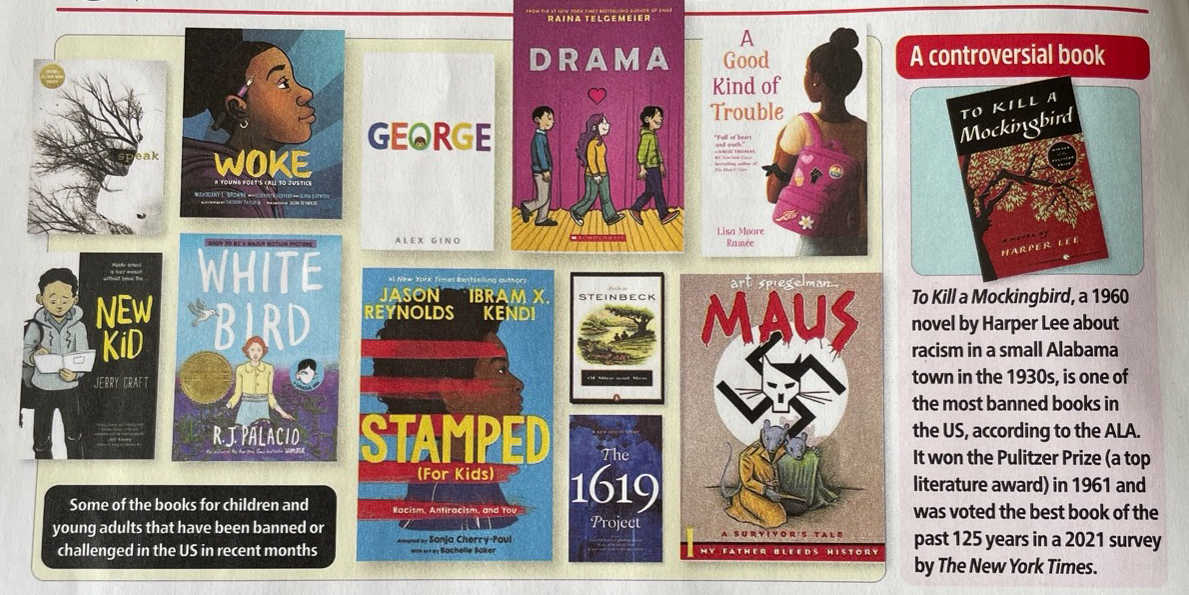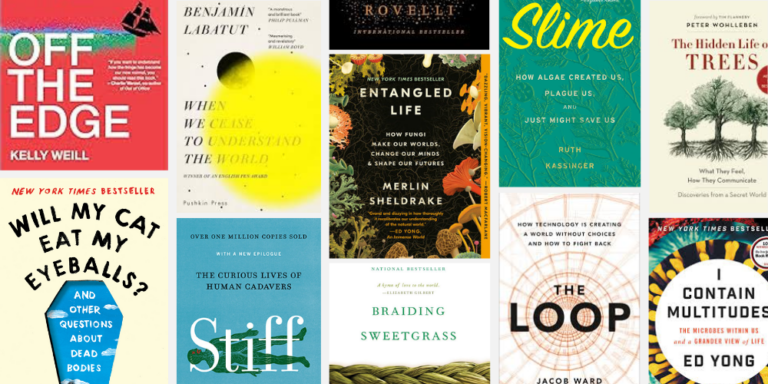“It’s like déja-vu all over again” is the clever, semi-in-French, Yogi Berra phrase, that comes to mind when thinking of book banning. As the “déja-vu” statement implies, this isn’t the world’s first experience with the banning of books. In 1933, the Nazi regime burned books before the start of World War II—which brings to mind a second phrase, “Those who do not know history are doomed to repeat it.” The lessons about free thinking and the dangers of censorship in the often-banned book Fahrenheit 451 are stunningly ironic as students and teachers negotiate what banned books mean for classrooms and learning.
Book banning creates questions for us all, but the impact is especially heavy for educators and students. Recently, a 7th-grade teacher gathered a collection of banned books to start a discussion about what bans mean for students, the classroom, and for the future of learning.
A list of 10 frequently challenged classic books from the American Library Association:
- The Great Gatsby by F. Scott Fitzgerald
- The Catcher in the Rye by JD Salinger
- The Grapes of Wrath by John Steinbeck
- To Kill a Mockingbird by Harper Lee
- The Color Purple by Alice Walker
- Ulysses by James Joyce
- Beloved by Toni Morrison
- The Lord of the Flies by William Golding
- 1984 by George Orwell
- Lolita by Vladimir Nabokov
If you’re curious about the books that are being read by students, this resource from Renaissance called “What Kids Are Reading,” lists the books students are reading in kindergarten through 12th grade.
Want to start a discussion about book banning? We’ve created catalysts that include Big Picture Questions, Questions for Educators, and Questions for Students. Download the Conversation Starters, then read the main questions we had about book banning below.
Why ban books?
When big questions arise, it is wise to slow down, take a deep breath, and ask, “What is the fear?” By examining fears, we uncover motivations. Those who seek to ban books appear to want to manage what children are reading on a broad scale, rather than encouraging families to make those decisions for themselves. Some of the most impactful things books do is show us we are not alone, and provide a “mirror” to help us learn who we are. When we read about characters’ struggles, challenges, and triumphs, and learn about life experiences through stories, connections are made, and in some cases, lives are even saved. Readers understand how life changing books can be. This list, “Books to Change Your Life,” from On My Canvas includes books that have, indeed, changed mine.
What do teachers think about book banning?
When asking teachers about book banning, many more questions than answers are generated.
This position statement from the National Council of Teachers of English, provides insight and information under the headings: The Right to Read, The Threat [of book banning] to Education, The Community’s Responsibility, A Program of Action, Procedures for Text Selection, The Legal Problem, Preparing the Community, and Defending the Texts.
What do librarians think of book banning?
In response to book banning, the American Library Association-A Website of the Office of the ALA for Intellectual Freedom created a page filled with information and resources like digital downloads, a list of frequently challenged books, information about Banned Books Week, and where to report censorship and find support.
Discussing book banning can be a meaningful and educational experience. By shedding light on the topic, we grow in our understanding about the ways banning books can impact learning, empathy, and progress. Our hope is the conversation starters we’ve created provide a place to begin the discussion, that the conversations will be rich, insightful, and that they will encourage students to think for themselves.
.png)
To learn more about book banning, please see the additional resources below.
- “Bringing Controversial Books into the Classroom: How Teachers Can Successfully Navigate the Tricky Territory of Introducing Books with Challenging Content into the Curriculum” from the Harvard Graduate School of Education
- “While Some Parents Push for Book Bans, Educators and Other Community Members Promote Diversity” from the Kansas City Beacon
- “14 Children’s Books with Life-Changing Lessons” from True Education Partnerships
- “Read the Books that Schools Want to Ban” from The Atlantic
- “Books Behind Bars,” from PBS
- “Adults Are Banning Books But They’re Not Asking Our Opinions: Meet the Teens of the Banned Book Club” from The Guardian
- “The History of Banned Books,” from Library Guides at Pima.edu







